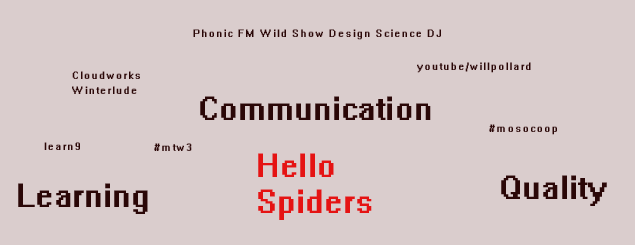"spiroculture" , crucible, another topic for #mtw3
From the knowledge economy to spiro-culture, identity culture, meaningfulness
My argument is a largely optimistic one.
It is that, although the knowledge economy is barely getting under way, to varying degrees in varying contexts, we are already moving on to another condition, or ‘state’ that I will varyingly call ‘identity culture’ or ‘spiro-culture’, depending on how brave I am feeling about mentioning spirituality, to which the latter refers.
----------
The optimistic part is that with a spiroculture lifestyle we can ‘walk lightly on the earth’, as the poor are said to do, in ecological terms. We can be spiritually rich but materially modest in our consumption. (reference here to Charles Carter, founding Vice-Chancellor, Quaker economist and his book ‘Wealth’ which attempts to reclaim the term for wellbeing, its original meaning).
Let’s be brave in this context.
Spiro-culture is about the search for meaningfulness in life. As customers this is increasingly the value which we are paying for.
The Nike T shirt that costs £50 may have cost 50p to make in China, £2 to ship and sell to us. The rest is for the brand. It is said that shopping malls are the cathedrals of the 21st century.
uuu
In the East in contrast, Zen Buddhists, for example, can self-actualise on an insecure handful of rice a day, though they may command some respect in some quarters.
Developing countries and spiritual roots
While the East, and its growing economies, are Westernising at some speed, they are probably still closer to their spiritual roots than the West, and the West, particularly America, has its spiritual, or rather religious (explain distinction?) commitments, particularly muscular Christianity, which has its good and bad points, in my view at least.
Developing countries and spiritual roots
Perhaps the West has much to learn from, as well as teach to, the East, and this could be a fertile ground for collaboration?
-----------------------------------------------------------
I was reminded of the second Management Theory at Work conference when John Wilson and Bronwen Rees spoke on "Towards an Understanding of Organisational Transformation through Ethical enquiry." Some searching has found a PDf with an update on Crucible Research, the project they were working on at the time.
http://www.bronwenrees.co.uk/articles
I will have a look and hope to have taken it in by next week.
